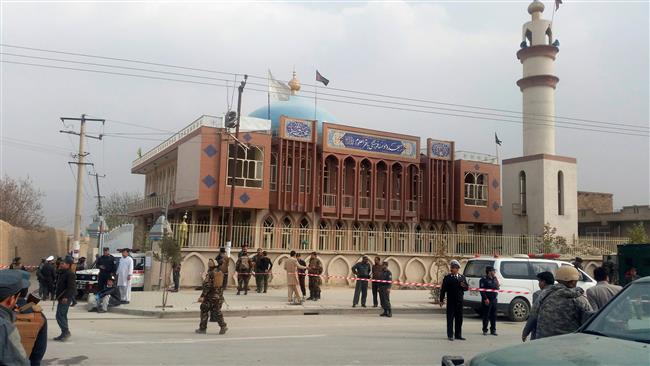
RNA - “The spread and growth of terrorism in the region has taken on a concerning trend,” Iranian Foreign Ministry Spokesman Bahram Qassemi said on Monday.
He added that terrorism would be uprooted in the region only through international resolve and consensus.
The Iranian spokesperson also extended his sympathy to the Afghan government and nation over the bloody terrorist attack.
Qassemi said the covert and overt support by certain countries for Takfiri-terrorist groups and their deployment as a means to achieve short-term goals have escalated acts of terror.
About 30 people were killed and dozens wounded after a bomber detonated his explosives at the Baqir ul Olum mosque in Kabul on Monday as mourners gathered to hold religious rituals commemorating Arba’een, the 40th day after the martyrdom anniversary of Imam Hussein (PBUH), the third Shia Imam.
The Chief of the Kabul police Criminal Investigation Department, Fraidoon Obaidi, said at least 27 people were killed and 35 wounded but the United Nations said at least 32 had been killed and more than 50 wounded, including many children.
It described the attack as "an atrocity."
Daesh terrorist group claimed responsibility for the fatal attack.
Over the past months, Afghanistan has witnessed a surge in Daesh terror activities, particularly in its eastern regions.
The rise of Daesh in Afghanistan has triggered concerns in the country, which has already been torn apart by decades of Taliban-led militancy and the 2001 invasion of the United States and its allies.
Daesh, mainly active in Syria and Iraq, has reportedly managed to take recruits from Taliban defectors in Afghanistan’s eastern province of Nangarhar, which borders Pakistan.
In August, Daesh claimed responsibility for a bombing during a demonstration held by the Shia Hazara community in Kabul, where at least 85 people were killed and more than 400 others wounded.
The surge in terrorist activities across Afghanistan comes despite the presence of forces from the United States and other NATO members.
847/940